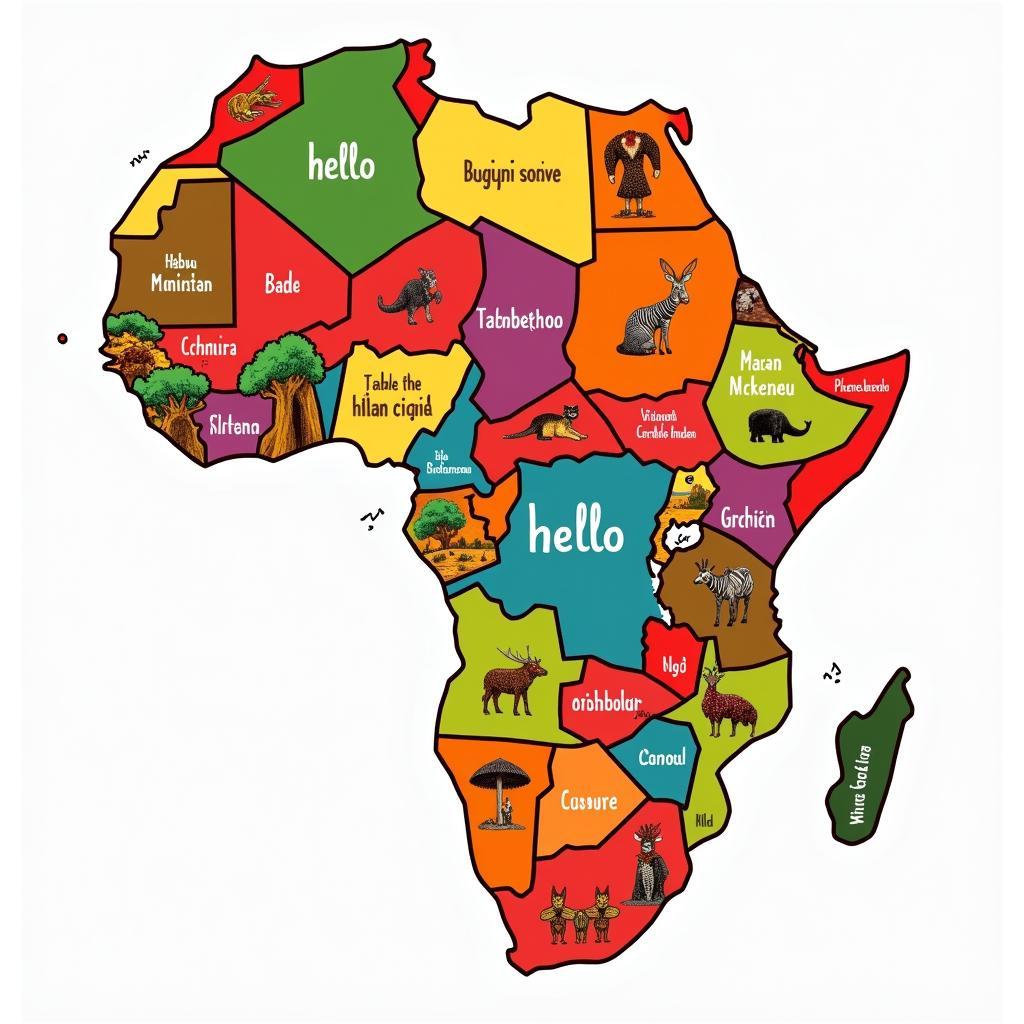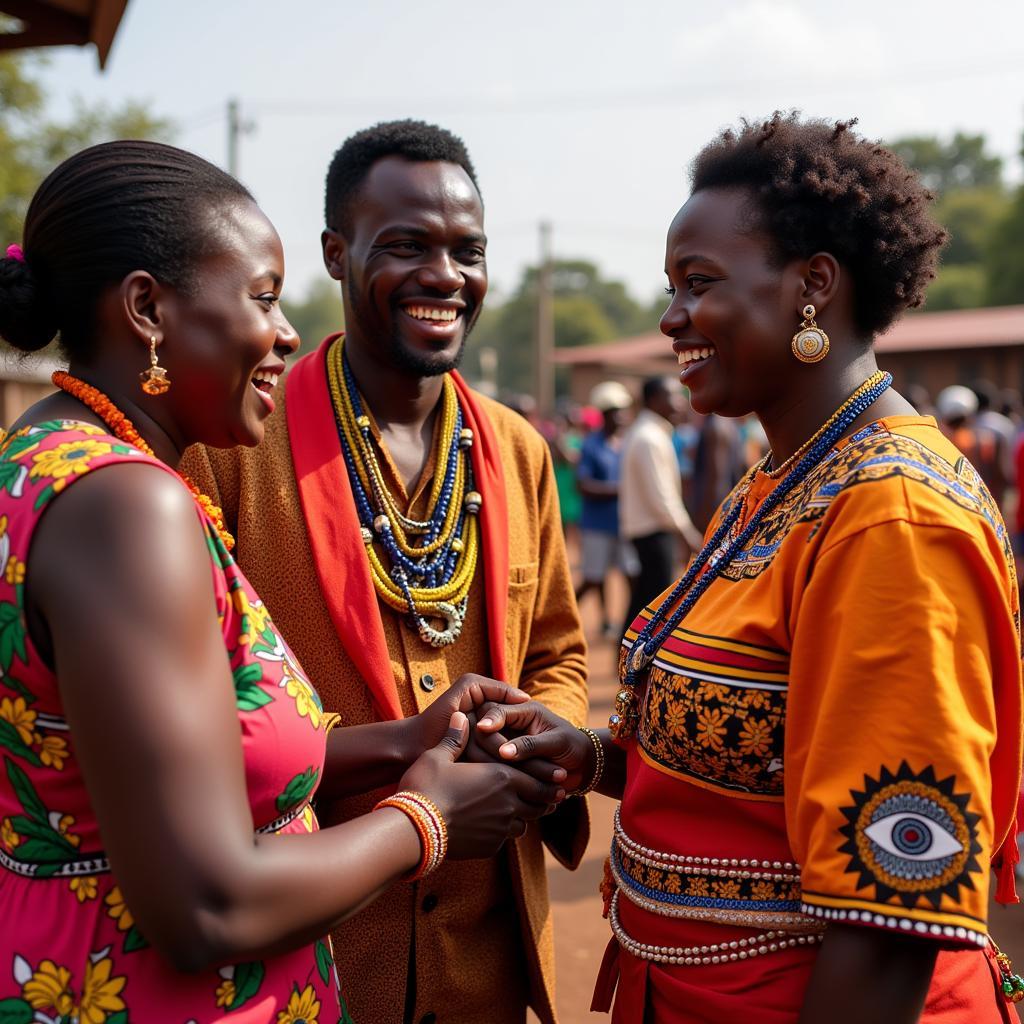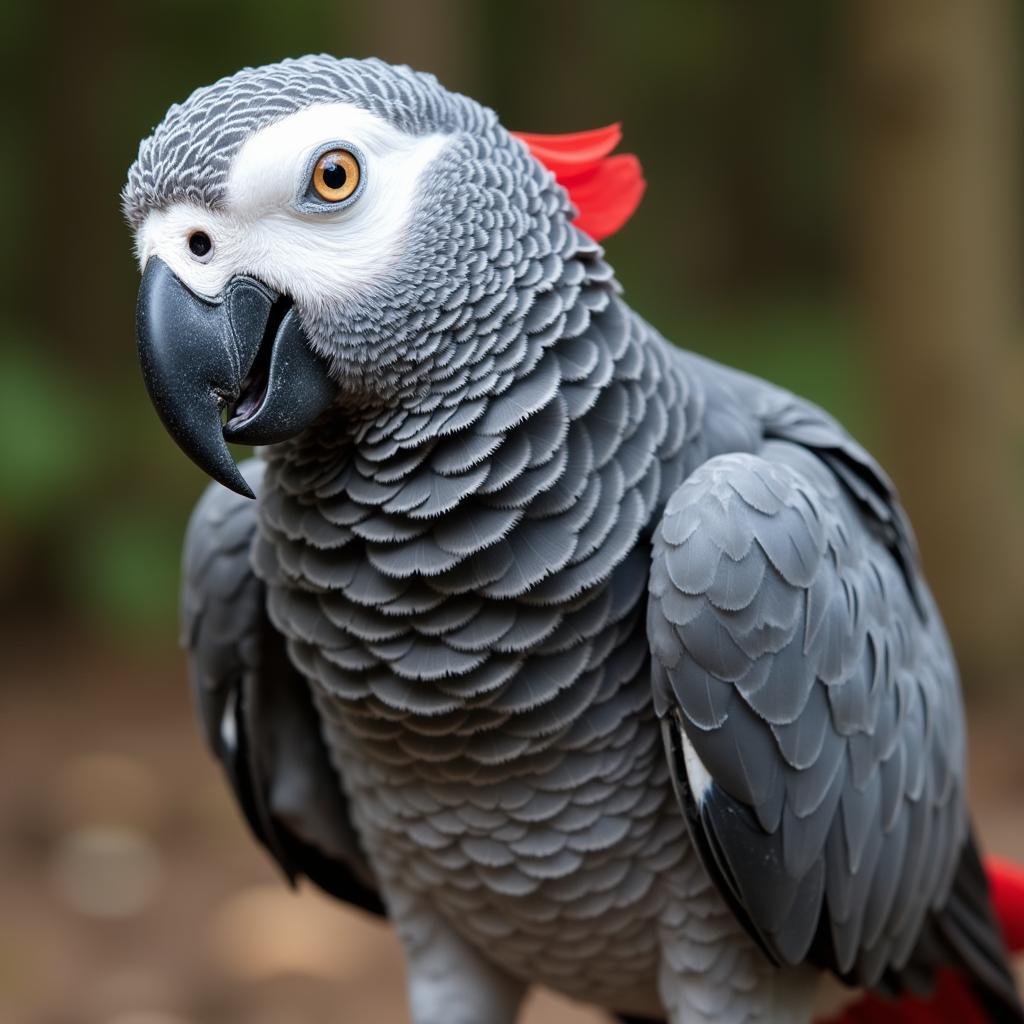Hello in African Languages: A Diverse Linguistic Landscape
Africa, the world’s second-largest and second-most-populous continent, is a melting pot of cultures, traditions, and languages. With an estimated 2,000 to 3,000 languages spoken across its 54 countries, Africa boasts incredible linguistic diversity. A simple greeting like “hello” transforms into a symphony of sounds and expressions, reflecting the continent’s rich tapestry of cultures.
 Map of Africa with various greetings
Map of Africa with various greetings
The Significance of Greetings in African Cultures
In many African cultures, greetings extend beyond a simple exchange of words. They are an integral part of social etiquette, signifying respect, goodwill, and a genuine interest in the well-being of others. Greetings often involve inquiries about one’s family, health, and general well-being, creating a sense of community and connection.
Exploring “Hello” in Different African Languages
Let’s embark on a linguistic journey across Africa, discovering the diverse ways to say “hello”:
-
Swahili (East Africa): “Hujambo” (singular) or “Hamjambo” (plural). Swahili, a widely spoken language in East Africa, uses these greetings to convey warmth and politeness.
-
Amharic (Ethiopia): “Selam” or “Tena Yistilign” (formal). Amharic, the official language of Ethiopia, reflects the country’s ancient history and cultural heritage.
-
Yoruba (Nigeria): “Ẹ n lẹ o” (good morning), “Ẹ káàárọ̀ o” (good afternoon), or “Ẹ kú ìrọ̀lẹ́ o” (good evening). Yoruba, a tonal language spoken in West Africa, demonstrates the importance of time-specific greetings.
-
Zulu (South Africa): “Sawubona” (singular) or “Sanibonani” (plural). Zulu, a Nguni language spoken in South Africa, uses these greetings to acknowledge and show respect to the person being addressed.
 People greeting each other in traditional African attire
People greeting each other in traditional African attire
-
Hausa (West Africa): “Sannu” (general greeting) or “Ina kwana” (literally meaning “how is your day?”). Hausa, one of the most spoken languages in West Africa, emphasizes the importance of inquiring about well-being.
-
Arabic (North Africa): “As-salamu alaykum” (peace be upon you), to which the response is “Wa alaykumu s-salam” (and upon you be peace). Arabic, a widely spoken language across North Africa, reflects the region’s Islamic heritage.
This is just a glimpse into the vast array of “hello” variations across Africa. Learn more about “hello” in African languages.
Beyond “Hello”: The Beauty of African Languages
Learning even a few basic phrases in an African language can enrich your travel experiences and foster cross-cultural understanding. From the click consonants of the Khoisan languages in Southern Africa to the tonal variations of West African languages like Yoruba and Igbo, each language offers a unique window into the diverse cultures and traditions of the continent.
 Group of people learning an African language
Group of people learning an African language
Conclusion
Saying “hello” in different African languages is an adventure in itself. It’s a journey into the heart of a continent brimming with linguistic diversity, cultural richness, and ancient traditions. By embracing these languages, we open ourselves to a world of communication, connection, and appreciation for the beauty of human expression.
FAQ
1. What is the most spoken language in Africa?
While there are thousands of languages spoken across Africa, Arabic, Swahili, Hausa, Yoruba, and Igbo are among the most widely spoken.
2. Are African languages difficult to learn?
Like any language, the difficulty of learning an African language depends on your prior language learning experience and the specific language you choose.
3. How can I learn an African language?
Numerous online resources, language learning apps, and cultural centers offer African language courses.
4. Why is it important to learn African languages?
Learning African languages promotes cross-cultural understanding, enhances travel experiences, and helps preserve linguistic diversity.
5. What are some resources for learning more about African languages?
Universities, cultural centers, and online platforms like the African Language Program at UCLA and the African Studies Center at Michigan State University offer valuable resources.
Need further assistance? Contact us:
Phone: +255768904061
Email: [email protected]
Address: Mbarali DC Mawindi, Kangaga, Tanzania
Our dedicated customer support team is available 24/7 to assist you.
Explore more about African culture and languages on our website:



